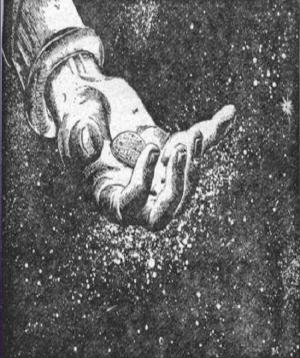Lay Morals, and Other Papers
Nonfiction, Religion & Spirituality, Philosophy, Ethics & Moral Philosophy, Fiction & Literature, Essays & Letters, Essays, Classics| Author: | Robert Louis Stevenson | ISBN: | 1230000275038 |
| Publisher: | Consumer Oriented Ebooks Publisher | Publication: | October 19, 2014 |
| Imprint: | Language: | English |
| Author: | Robert Louis Stevenson |
| ISBN: | 1230000275038 |
| Publisher: | Consumer Oriented Ebooks Publisher |
| Publication: | October 19, 2014 |
| Imprint: | |
| Language: | English |
In our long voyage on the yacht Casco, we visited many islands; I believe on every one we found the scourge of leprosy. In the Marquesas there was a regular leper settlement, though the persons living there seemed free to wander where they wished, fishing on the beach, or visiting friends in the villages. I remember one afternoon, at Anaho, when my husband and I, tired after a long quest for shells, sat down on the sand to rest awhile, a native man stepped out from under some cocoanut trees, regarding us hesitatingly as though fearful of intruding. My husband waved an invitation to the stranger to join us, offering his cigarette to the man in the island fashion. The cigarette was accepted and, after a puff or two, courteously passed back again according to native etiquette. The hand that held it was the maimed hand of a leper. To my consternation my husband took the cigarette and smoked it out. Afterwards when we were alone p. viand I spoke of my horror he said, ‘I could not mortify the man. And if you think I liked doing it—that was another reason; because I didn’t want to.’
Another day, while we were still anchored in Anaho Bay, a messenger from round a distant headland came in a whale-boat with an urgent request that we go to see a young white girl who was ill with some mysterious malady. We had supposed that, with the beach-comber ‘Charley the red,’ we were the only white people on our side of the island. Though there was much wind that day and the sea ran high, we started at once, impelled partly by curiosity and partly by the pathetic nature of the message. Fortunately we took our luncheon with us, eating it on the beach before we went up to the house where the sick girl lay. Our hostess, the girl’s mother, met us with regrets that we had already lunched, saying, ‘I have a most excellent cook; here he is, now.’ She turned, as she spoke, to an elderly Chinaman who was plainly in an advanced stage of leprosy. When the man was gone, my husband asked if she had no fear of contagion. ‘I don’t believe in contagion,’ was her reply. But there was little doubt as to what ailed her daughter. She was certainly suffering from leprosy. We could only advise that the girl be taken to the French post at Santa Maria Bay where there was a doctor.
In our long voyage on the yacht Casco, we visited many islands; I believe on every one we found the scourge of leprosy. In the Marquesas there was a regular leper settlement, though the persons living there seemed free to wander where they wished, fishing on the beach, or visiting friends in the villages. I remember one afternoon, at Anaho, when my husband and I, tired after a long quest for shells, sat down on the sand to rest awhile, a native man stepped out from under some cocoanut trees, regarding us hesitatingly as though fearful of intruding. My husband waved an invitation to the stranger to join us, offering his cigarette to the man in the island fashion. The cigarette was accepted and, after a puff or two, courteously passed back again according to native etiquette. The hand that held it was the maimed hand of a leper. To my consternation my husband took the cigarette and smoked it out. Afterwards when we were alone p. viand I spoke of my horror he said, ‘I could not mortify the man. And if you think I liked doing it—that was another reason; because I didn’t want to.’
Another day, while we were still anchored in Anaho Bay, a messenger from round a distant headland came in a whale-boat with an urgent request that we go to see a young white girl who was ill with some mysterious malady. We had supposed that, with the beach-comber ‘Charley the red,’ we were the only white people on our side of the island. Though there was much wind that day and the sea ran high, we started at once, impelled partly by curiosity and partly by the pathetic nature of the message. Fortunately we took our luncheon with us, eating it on the beach before we went up to the house where the sick girl lay. Our hostess, the girl’s mother, met us with regrets that we had already lunched, saying, ‘I have a most excellent cook; here he is, now.’ She turned, as she spoke, to an elderly Chinaman who was plainly in an advanced stage of leprosy. When the man was gone, my husband asked if she had no fear of contagion. ‘I don’t believe in contagion,’ was her reply. But there was little doubt as to what ailed her daughter. She was certainly suffering from leprosy. We could only advise that the girl be taken to the French post at Santa Maria Bay where there was a doctor.















